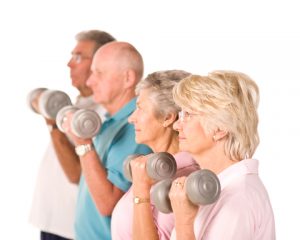 Yesterday at our research conference, one popular session focused on bone health for cancer survivors. More than 40 million adults in the US have or are at high risk for osteoporosis, a bone weakening disease.
Yesterday at our research conference, one popular session focused on bone health for cancer survivors. More than 40 million adults in the US have or are at high risk for osteoporosis, a bone weakening disease.
Often due to some cancer therapies, survivors are at higher risk for bone loss and osteoporosis than the general population.
Breast and prostate cancer treatments may cause low estrogen or androgen levels, two hormones important for strong bones.
Between sessions, I talked with several oncology dietitians about how they work with survivors on bone health in their centers and clinics. While not unanimous, most RDs said their patients are very aware of their increased risk for bone loss and receive DEXA screening — a test for bone mineral density — and treatment, including diet and lifestyle prescriptions as well as appropriate medications.
The dietitians said that tor many of the patients and survivors, because so many of the things in their life seem out of control, taking appropriate medications and learning how to get enough calcium, vitamin D and physical activity to help them maintain or at least slow bone loss feels like an empowering action.
If you are a cancer patient or survivor and your doctor has not discussed bone health with you, ask whether the treatments you’re receiving put you at risk for weakened bones.
Researchers and oncology dietitians agree that survivors should be sure to get 1200 mg of calcium, through food as much as possible, and that higher levels do not appear to be beneficial. For vitamin D, adults who get minimal sun exposure should take an 800 IU vitamin D supplement daily.
Researchers are studying how much physical activity, what types and at what intensity levels will be most helpful for maintaining healthy bones, but for now aim to get at least 30 minutes of physical activity daily including both aerobic and resistance training.
Here are highlights of the research presented at our conference.






I would like to present some questions about bone health. I have read that Vitamin D and calcium help prevent cancer. Since Infants on breast milk and formula rarely get cancer and the chances of getting cancer rise as we age and our bones become depleted, assuming there is a connection, what nutrients do we store in our bones that help to prevent cancer ? Does our bodies exhaust certain nutrients as we age which increases the chances of contracting cancer ? Are there any studies on this theory ? I pose these questions just in case they have not been addressed before and as always I am just concerned for people who suffer , who battle this terrible disease, thanks for listening